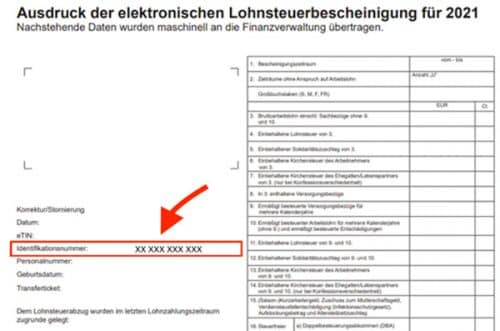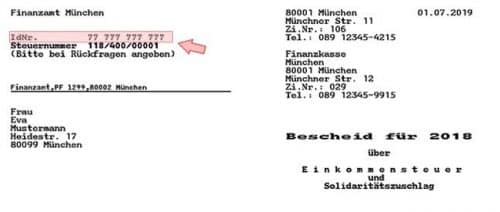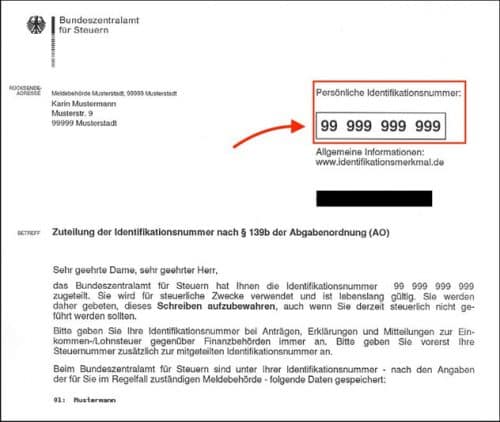FAQ on income tax and income tax return
BASIC INCOME TAX
Income tax is a tax on income. The taxable income in Germany is made up of the different income sources. Germany only has a federal income tax. Other countries (e.g. USA) have state, municipal and city income tax. This is not existent in Germany. Income tax is the same all across Germany, as this is a federal tax. Every individual who is subject to unlimited taxation in Germany has a tax free amount of currently 10.347 (2022), where no tax is levied. The initial marginal tax rate starts at 14 % and increases up to 42% with an income of approx.. 57 TEUR (and 45 % in cases of income of 260 TEUR).
Individuals resident in Germany are subject to German income tax within the framework of unlimited tax liability, as are non-resident taxpayers with (certain) domestic income (subject to limited tax liability).
Thus, income tax is paid by everyone whose income has not already been settled by wage tax or capital gains tax. Income tax is paid by doctors, insurance brokers, car dealers, landlords, tax consultants, lawyers and many other self-employed people and traders.
There are seven types of income in the Income Tax Act. These types of income are:
- Income from agriculture and forestry § 13 EStG
- Income from commercial operations § 15 EStG (sales representatives, restaurateurs, car dealers, retailers, etc.)
- Income from self-employment § 18 (tax consultants, doctors, lawyers, authors, bloggers)
- Income from non-self-employed work § 19 EStG (employees, wage earners)
- Income from capital assets § 20 EStG (dividends, capital gains, interest from loans)
- Income from renting and leasing § 21 EStG (renting a condominium)
- other income § 22 (pensions, private sale, real estate sales)
As a resident of Germany, if you are subject to German income tax, all of your income is subject to taxation, regardless of where it originates. This means that foreign income is also initially subject to German taxation (the so-called world income principle).
If there is a double taxation agreement between Germany and the source country in the area of income taxes, the right to tax is usually attributed to the country of residence Germany or the foreign country of source, depending on the type of income.
Income-related expenses are the costs incurred to secure, maintain and acquire an activity, these are:
- Travel expenses (daily trips to work, family trips home)
- Bank fees
- Work attire, Work wear (with restrictions, see Downloads)
- Specialist literature
- Training costs (courses, seminars etc.)
The income tax is paid by the taxpayer himself in the form of advance tax payments (typically on a quarterly basis) and, if necessary, an additional payment at the request of the tax office. This is the case, for example, with tradespeople, the self-employed or with the generation of rental income.
The income tax is deducted from the employee's salary and paid to the tax office by the employer. This is done monthly with the pay slip by the employer. The income tax is paid by the taxpayer himself to the tax office. The difference here is only present during the year. At the end of the year, the same percentages, laws and regulations apply to income tax and wage tax. The benefit of paying income tax is that advance payments can be adjusted throughout the year.
Normally, it is worthwhile for the employee to submit the income tax return, as this allows him to claim income-related expenses. These income-related expenses reduce the taxable income and lead to a lower tax burden.
Taxable supplementary income greater than 410 euros per calendar year without a tax deduction requires you to file a tax return. Taxable supplementary income includes pensions, royalties, rental income, and investment income on which no settlement tax (Abgeltungssteuer) was paid, such as foreign investments.
Territorial jurisdiction for personal income taxation is based on residence. In the case of multiple residences in Germany, the domicile where he or she mainly resides is decisive for single persons. In the case of taxpayers who are married or living in a civil partnership with multiple residences and do not live permanently apart, the residence where the family mainly resides is decisive.
If there is a change in local responsibility due to a change of address, the change in responsibility occurs at the point in time at which one of the two tax offices learns about it. The newly responsible tax office has to take over the taxation in full.
In order to get back the withheld capital gains tax, you still have to submit an income tax return together with Annex KAP, even if you are not otherwise obliged to submit an income tax return. You will then be reimbursed for the withholding tax you paid as part of the assessment process.
Being a tax resident in Germany and therefore subject to unlimited tax liability in Germany, you are obliged to provide information on your foreign incomes. This typically does not result in a double taxation, however the tax burden can increase to the German level. When filing your taxes we need information on all your income sources – domestic and foreign.



